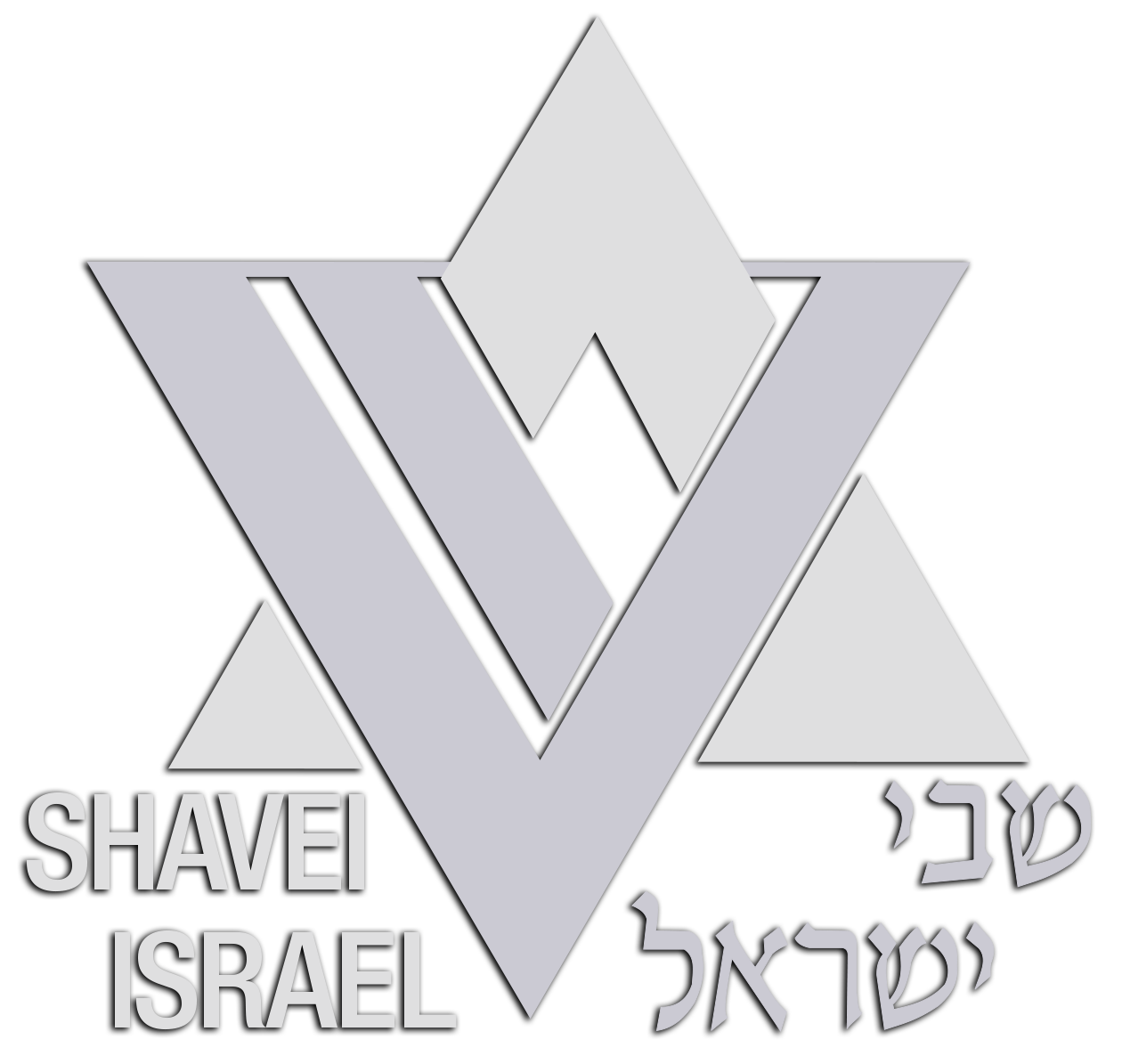Shavei Israel profile: Mariusz Opałko – 64-year-old bar mitzvah boy shares his astonishing Jewish discoveries
The signs were all around him, but it took 51 years for Mariusz Opałko to learn the truth about his Jewish heritage. Despite being surrounded by the mostly Jewish friends of his parents growing up, and even having a relative who was a famous klezmer musician, playing traditionally Jewish music, Opałko’s family deftly hid their Polish Jewish roots until his mother was in the hospital 13 years ago and dramatically revealed what Opałko had suspected but didn’t dare ask. Only two days later, she passed away, leaving Opałko to figure out what to do next on his own.
13 years later, that “what to do next” resulted in a remarkable event: Opałko, now 64, recently celebrated his Bar Mitzvah in Jerusalem at the Western Wall in a festive ceremony organized by Shavei Israel. You can read more about the event itself here and view a photo gallery here. The trip, Opałko’s first visit to Israel, came about after Opałko met Shavei Israel Chairman Michael Freund earlier this year at Shavei’s weekend seminar for Polish Jews held at Auschwitz on the eve of Holocaust Memorial Day.
“I was deeply moved,” Freund says of the meeting. “I told Mariusz that since 13 years have passed since he found out he was a Jew, it is an appropriate time for him to have a Bar Mitzvah.”
Getting to that point has been an incredible journey for Opałko, an attorney specializing in restitution and recovering lost property. We spoke to him from his home in Świebodzice near Wroclaw.
Opałko’s parents both grew up in Zawiercie, a small Polish city in the south of the country near Silesia. When the Germans invaded, two local priests took enormous risks by writing their names into the books of official baptisms. “We weren’t actually baptized,” Opałko stresses. One of the priests also doctored Opałko’s mother’s birth certificate to use the more German sounding “Leder” instead of her birth name of “Lederman,” which Opałko says “was recognizably Jewish.” These brave acts allowed Opałko’s parents to pass as non-Jews.
Opałko’s grandfather also had a personal connection with one of the priests – the two had known each other when the grandfather had been imprisoned a number of times for being a communist, Opałko explains. The priest came to visit him and the two became friends.
Although Opałko’s parents knew each other growing up, there was a 7-year difference between them. Near the end of the war, though, when Opałko’s mother had turned 18, they decided to get married. They had a Jewish ceremony but were written down as “Catholic” in the official marriage registry by the priests who had already done so much to save them.
After the war, “it was not so comfortable to identify as a Jew,” Opałko explains, and his parents decided to keep up the ruse and pretend to be Catholic. “They did that for the rest of their lives,” Opałko says, adding, “Still, they never went to church.” Perhaps in part as a result, Opałko describes his life growing up as “carefree.” And indeed, his friends envied him because he was the only one who didn’t have to go to church.
His father worked in education and rose as high as the director of a new primary school in Zawiercie which he managed to name after Janusz Korczak, the famous Polish-Jewish educator and pediatrician who refused to leave the orphans he took care of in the Warsaw Ghetto and was sent together with them to the Treblinka extermination camp in 1942.
Perhaps because Opałko wasn’t concerned with matters of religion as a child, he didn’t take much note of the fact that his parents had mostly Jewish friends. “I didn’t ask questions,” he says. Indeed, it appears that “everyone knew my parents were Jewish…except me.”
That wasn’t entirely true. Opałko had suspicions. When Opałko’s father died in 1978, Opałko asked one of his parents’ friends, who he knew was Jewish, if Opałko’s father was too. The friend replied curtly, “You should have asked your father.” The friend then instructed Opałko to ask his mother. “But I didn’t,” Opałko says. It would be another 21 years before he finally found out the truth.
Other clues were there, if Opałko had been willing to look. His parents never called “Christmas” by its full name, for example. “They always referred to it as the ‘December holiday,’” he says. And they started it earlier and ended it later than the one traditional day of Christmas. Today, he realizes that this was there way of marking the Jewish holiday of Hanukah “without saying it was Hanukah.”
For Passover, his mother prepared a matzah-like dish made of flour and water cooked on a hot metal sheet on top of the kitchen stove. In Polish, it’s called Podpłomyk. “They ate it both at Pesach and also in December,” he recalls with a smile.
When his parents didn’t want Opałko to understand what they were saying, they spoke in a language he always thought was German. He realizes now that it was Yiddish.
And then there was Opałko’s relative, Leopold Kozłowski, who is known today at age 90 as “The Last Klezmer of Galicia,” referring to a region straddling the border between Poland and Ukraine, which had a large Jewish population before the War. “His Jewish surname was actually Kleinman,” Opałko says, “but he uses his Polish name to this day.”
After Opałko learned from his mother about his Jewish roots, he approached Kleinman. “I asked him whether I am a Jew,” Opałko says. “But he said no, you are not. It wasn’t the truth. He wanted to protect me from all of the bad things that happened to the Jews over the years. He wanted to protect me from anti-Semitism.”
Opałko’s mother had told him about the fake baptism records so he went back to Zawiercie to search, but the archives had been either moved or destroyed. “There was only a note about my parent’s wedding,” he says. He suspects that it may have been his parents who destroyed the records. “They were in the city of Kielce on July 4, 1946,” he explains. “On that day, there was a massacre and the Poles killed many Jews. My parents were so afraid, I think they burned all the documents themselves.”
Even before he knew officially about his own heritage, he married a woman whose father was Jewish – Maria Shudrich, who Opałko believes may be related to current Polish Chief Rabbi Micahel Shudrich. Like Opałko, her Jewish roots had been hidden from her too.
How did Opałko react when he learned from his mother the real story of where he came from? “I was astonished,” he says. “I had been suspicious, but I thought there was only a 5% chance that I was actually Jewish.” He went home and shared the news with his wife. They wrote down all the questions they could think of but, by the time they got back to the hospital, his mother was gone.
Opałko didn’t initially take on any Jewish customs, other than not eating pork (“not a problem,” he says). His wife Maria died in 2003 and, in 2004, Opałko moved to the U.S. for two years to assist a law office working on issues of Polish Jewish property restitution. He began attending introductory Judaism lectures there, first in Los Angeles and than at an Orthodox synagogue on the beach in Venice, California. This piqued his interest and, upon his return to Poland in 2006, he joined several classes organized by Shavei Israel in Krakow, where he was then living. That’s where he met Shavei Israel’s emissary to Poland, Rabbi Boaz Pash.
“I had only asked questions in Los Angeles,” Opałko says, “I didn’t start to really study Judaism until I met Rabbi Pash. He was my first teacher and I learned so much from him.”
Rabbi Pash met Opałko in Israel for his Bar Mitzvah at the Western Wall last month. In the pictures and video on the Shavei Israel website [link], Opałko is clearly moved, often to tears, during the ceremony. The emotional journey began upon arriving at the airport. “The security personnel asked if I’d ever been to Israel before,” he explains. “I said no, and that I was here for my Bar Mitzvah. They all said mazel tov. And they let me in without any problems!”
“Since my mother revealed this incredible secret to me, I feel like I am reborn,” Opałko says. Perhaps that’s why, at his Bar Mitzvah, he was called up to the Torah using the Hebrew name his parents gave him at birth – and which his mother shared with him before she died: Moshe (Moses).
Moreover, when Opałko learned from his mother he was Jewish, another astonishing fact was revealed: that he was a kohen – a member of the priestly caste reaching all the way back to the Biblical Aaron, brother of Moses. “This is very important to me,” Opałko says. “It means I must set an example. Like Aaron, I must continue what my father and my grandfather didn’t do. It means that whatever they didn’t do, I should do.”
Those words guide Opałko as he continues his journey as a Jew, aware of his past and mindful of his future. In that respect, he is every bit a true Bar Mitzvah boy!
To see pictures from the Bar Mitzvah, click here.











